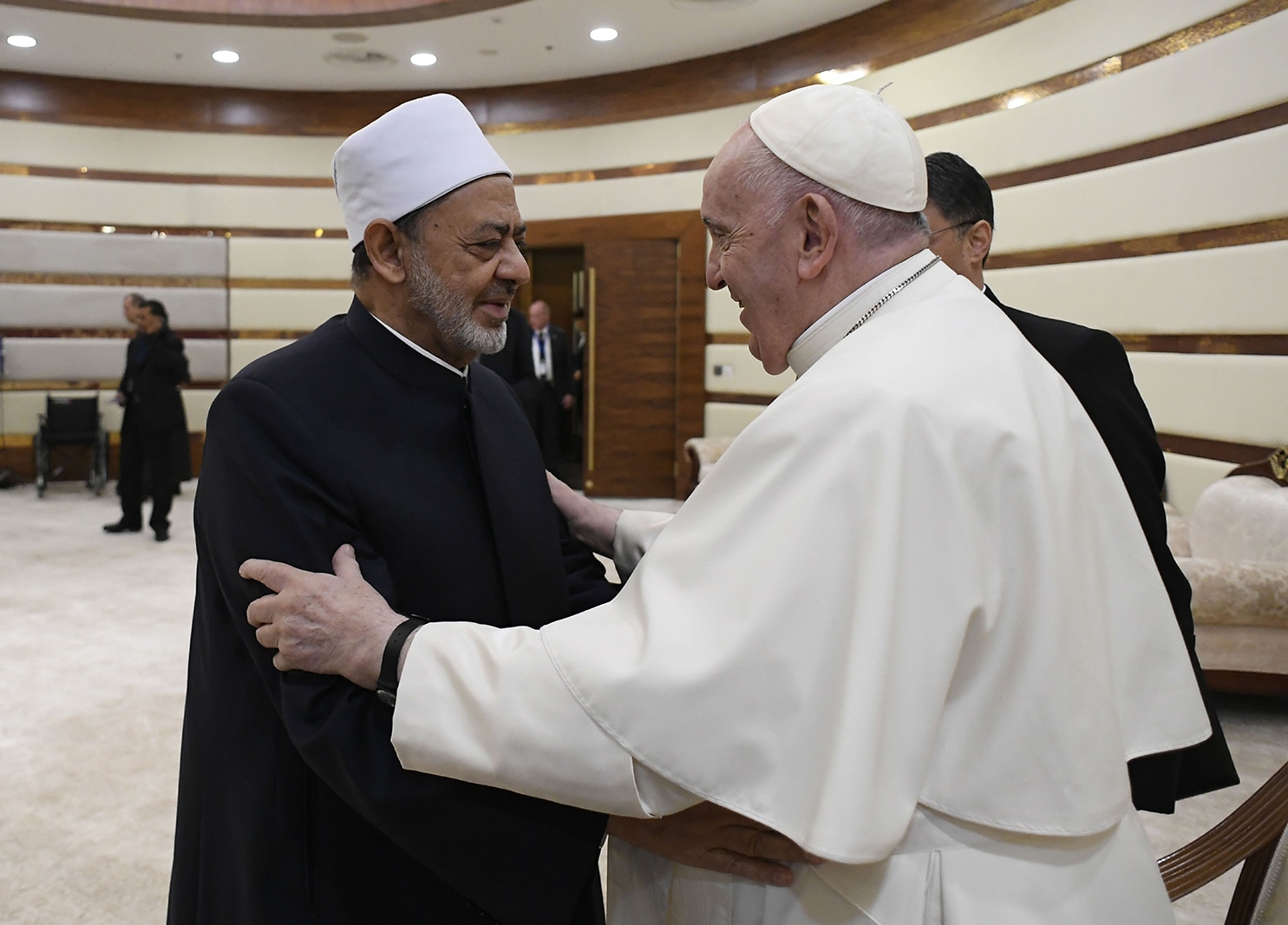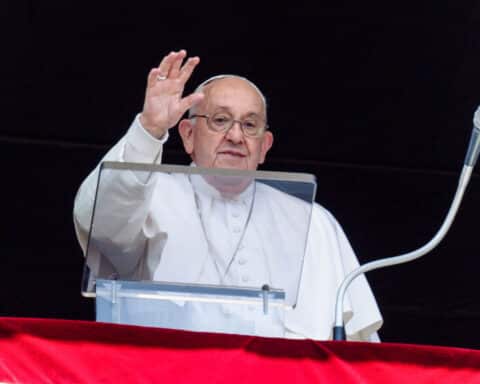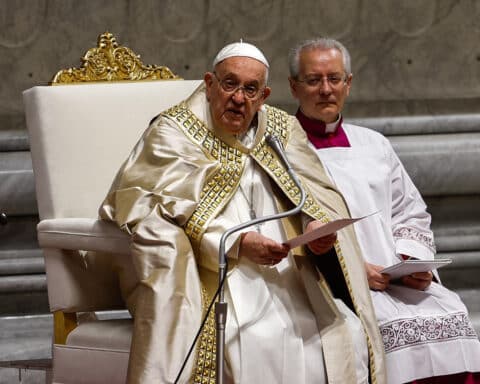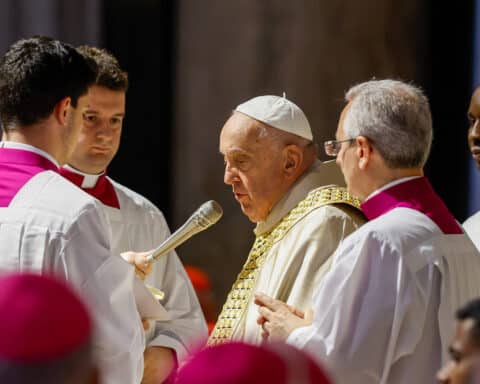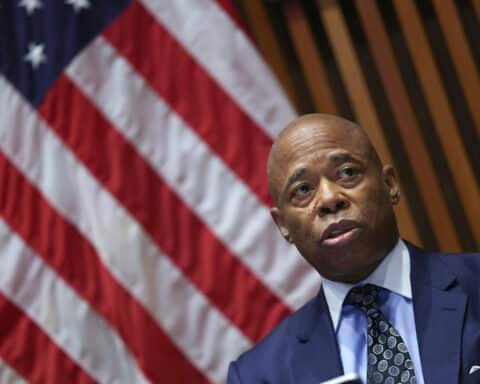VATICAN CITY (CNS) — Dialogue, solidarity and recognizing each other as brothers and sisters are key to defeating “the dark shadows of injustice, hatred and war,” Pope Francis said.
The pope made the remarks in a message read Feb. 4 at a ceremony to confer the Zayed Award for Human Fraternity, an award created to honor people who live the values promoted in the “Document on Human Fraternity for World Peace and Living Together,” which he and Egyptian Sheikh Ahmad el-Tayeb, grand imam of Al-Azhar, signed Feb. 4, 2019.
On behalf of Catholics and Muslims, the document pledged “the adoption of a culture of dialogue as the path; mutual cooperation as the code of conduct; reciprocal understanding as the method and standard” for relations between the two communities.
The pope and the sheikh, the leader of the most prestigious center of learning for Sunni Muslims, said that believing in one God, creator of all, also means recognizing that all people are brothers and sisters.
In an unusual letter addressed to “my Jewish brothers and sisters in Israel” Feb. 2, Pope Francis made a similar point.
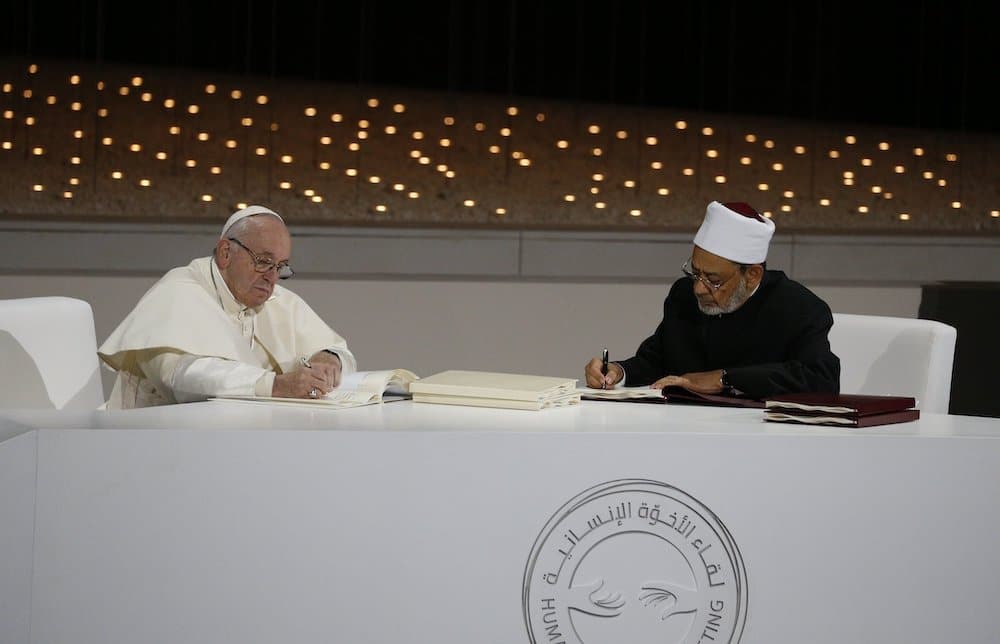
Day of human fraternity
He quoted remarks he had made in 2014 at a gathering to pray for peace in the Holy Land, when he told Christians, Muslims and Jews that the only way to break cycles of violence is to see each other as a brother or sister, but to do that they must “lift our eyes to heaven and acknowledge one another as children of one Father.”
In 2020, the U.N. General Assembly proclaimed an annual International Day of Human Fraternity to be celebrated every Feb. 4, the anniversary of the pope and the sheikh signing their document.
In his message for the 2024 celebration, António Guterres, U.N. secretary-general, said the day is an occasion to “celebrate the spirit of mutual respect and solidarity that binds us together as one human family.”
“Today, these values are being severely tested. Our world is marred by divisions, conflicts, and inequalities. Discrimination is running rampant,” Guterres said. “We must come together to protect and uphold human rights, combat hate speech and violent extremism, and push back against those who profit from fear.”
Inspired by the pope and the sheikh, he said, every person should “work toward a world where dialogue, compassion and human dignity prevail.”
While tensions, terrorism and war continue to afflict the world, there also are many signs of hope inspired by the document, said Cardinal Miguel Ayuso Guixot, prefect of the Dicastery for Interreligious Dialogue.
The cardinal, writing in the Vatican newspaper, called the document a “parenthesis of hope” in a world of conflict and prayed that the fifth anniversary of the document would see a renewed commitment to “transforming our world through dialogue that leads to true and lasting peace.”
One concrete sign he cited was the opening last year of the Abrahamic Family House, a compound in Abu Dhabi that includes a conference center and the Eminence Ahmed El-Tayeb Mosque, St. Francis Church and Moses Ben Maimon Synagogue.
Christian-Muslim dialogue
Pope Francis also marked the anniversary of the document by sending a message to participants in the International Congress of PLURIEL, the University Platform for Research on Islam, who were meeting in Abu Dhabi, United Arab Emirates, where the document was signed.
The European Federation of Catholic Universities created PLURIEL in 2014 to foster links between researchers focusing on Islam and on Christian-Muslim dialogue.
Pope Francis thanked the group for their efforts “at a time when fraternity and living together are being called into question by injustices and wars which — I would remind you — are always defeats of humanity. The roots of these evils are threefold: a lack of understanding of others, a failure to listen and a lack of intellectual flexibility.”
He said they are “three flaws in the human spirit that destroy fraternity.”
“The problems of today and tomorrow will remain unsolvable if we do not get to know and value each other, and if we remain isolated,” the pope wrote. “Getting to know the other, building mutual trust, changing the negative image we may have of this ‘other,’ who is my brother in humanity, in publications, speeches and teaching, is the way to initiate processes of peace acceptable to all.”
Cardinal Ayuso, marking the anniversary in L’Osservatore Romano Jan. 31, said, “The document on human fraternity represents not only a map for the future but also a compass in the daily commitment of people of different religions and of good will to work together for the benefit of every woman and every man.”

